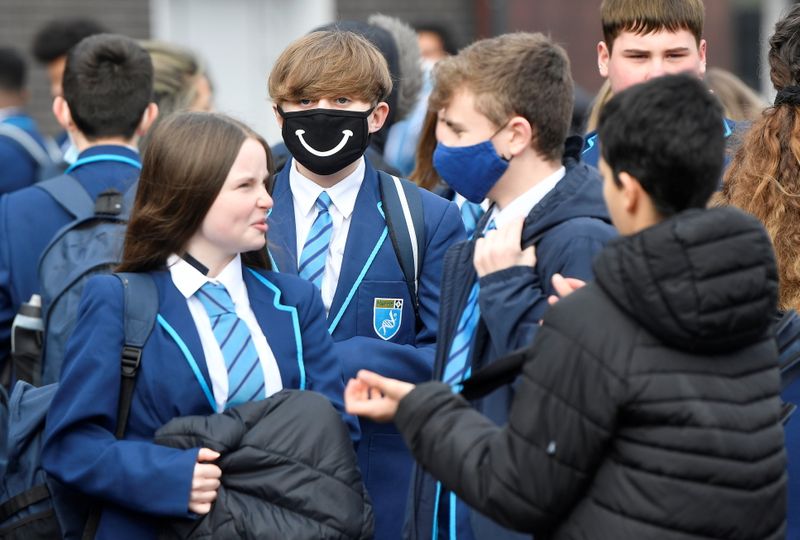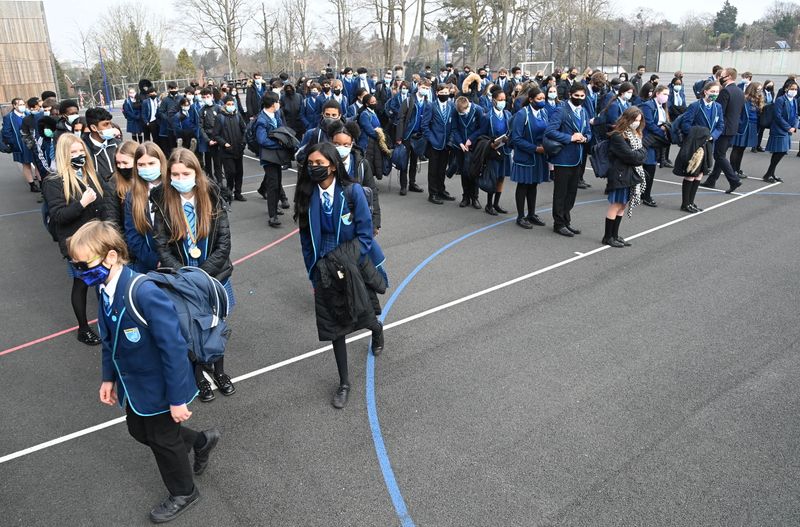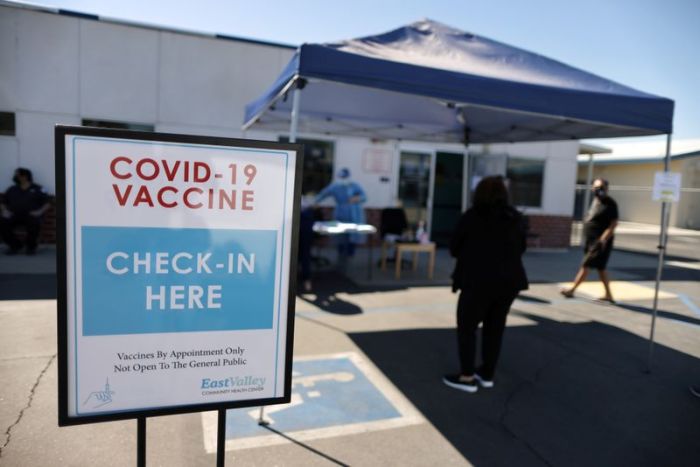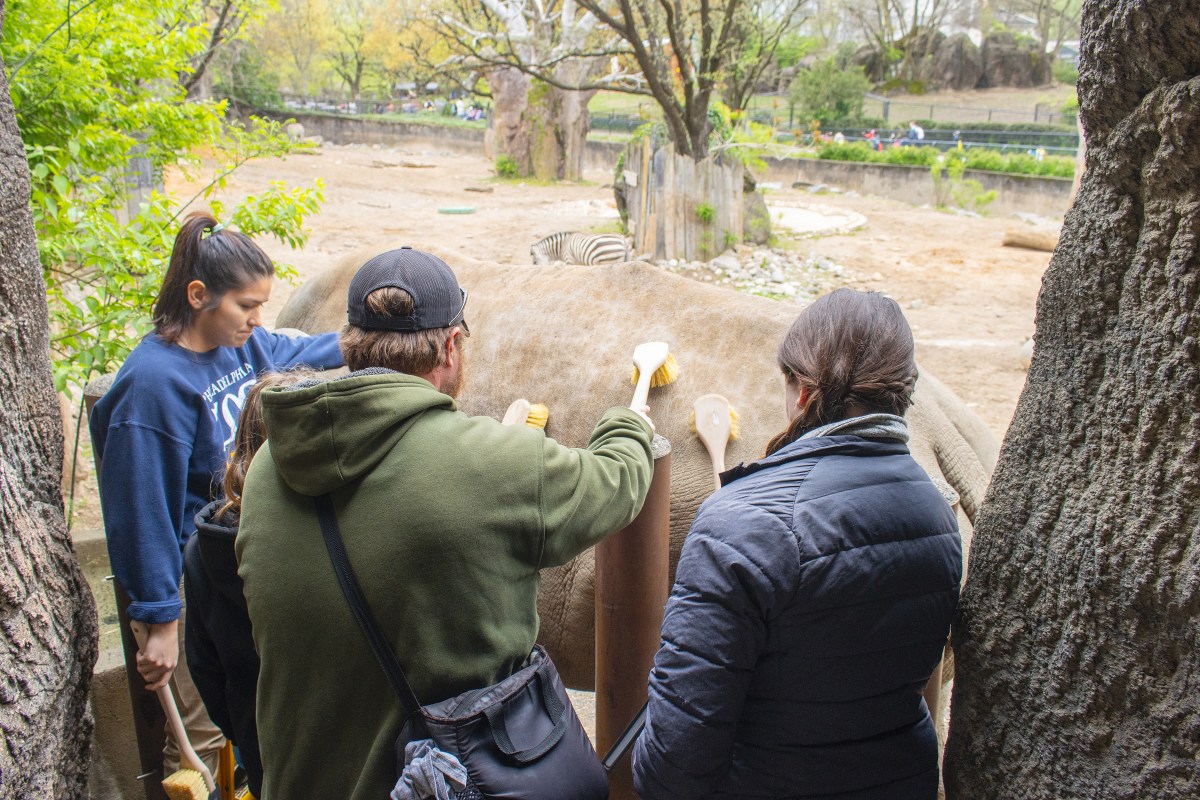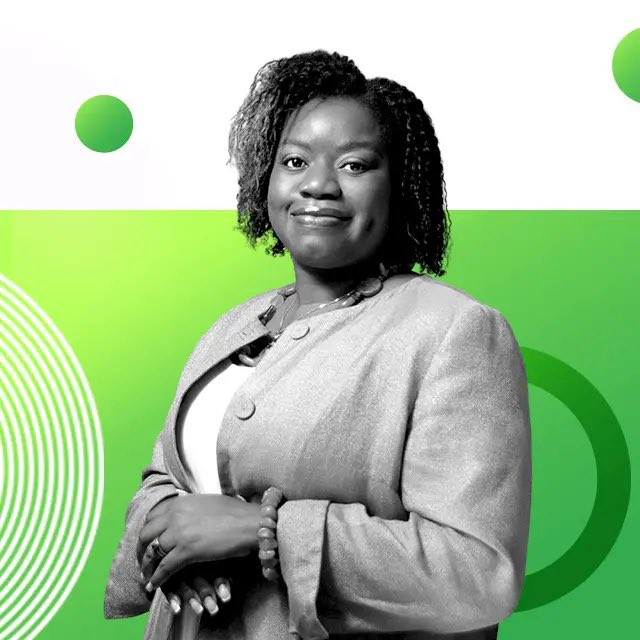LONDON (Reuters) – Millions of English children and teenagers headed back to school on Monday for the first time in two months, having endured their second extended stretch of home learning because of a strict national lockdown to slow the spread of COVID-19.
The reopening of English schools to all pupils is the first step in a four-stage government plan to ease the lockdown while trying to prevent a new surge in infections after a devastating winter wave that severely strained hospitals.
Since the start of the pandemic, Britain has recorded 124,500 deaths within 28 days of a positive COVID-19 test, the fifth highest official death toll in the world and the worst in Europe.
For adults in England, the lockdown remains in force, with social contact severely restricted, people under orders to stay at home except for essential reasons, most shops closed, and cafes and restaurants able to offer only takeaway or delivery.
“Getting all schools back has been our priority and the first step of our roadmap back to normality,” Prime Minister Boris Johnson said on Twitter.
The reopening of schools is a huge relief to millions of parents who have spent months juggling work and full-time childcare.
Primary school pupils return to their classrooms and playgrounds with some COVID rules, such as not being able to socialise with children outside a strictly defined “bubble”, staggered arrivals and departures, and frequent hand-washing.
For secondary schools and their pupils, the requirements are more onerous. Teenagers are being mass-tested for COVID — a logistical headache for schools — and are required to wear face coverings in class.
Despite these restrictions, the near-consensus among parents, teachers, child psychologists, social workers and broader society is that getting children back into schools is urgent for their mental health, education and life chances.
Most pupils had missed out on more than three months of school in the spring and early summer of 2020, when Britain was under its first strict national COVID lockdown.
In that first shutdown, as in the recent one, only children considered vulnerable or those whose parents are classified as “key workers” by the government were allowed to go to school. However, even they were not having normal lessons, as teachers were busy organising distance learning for all the others.
(Reporting by Estelle Shirbon, editing by Ed Osmond)




